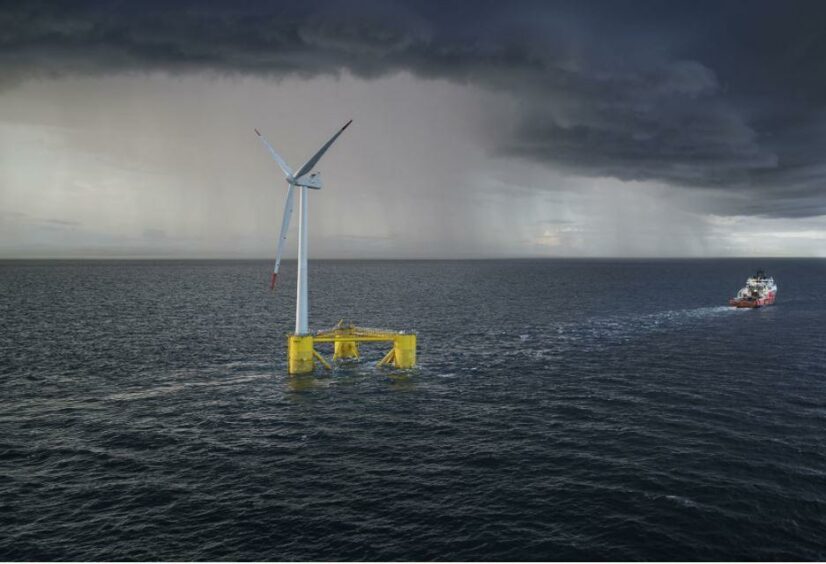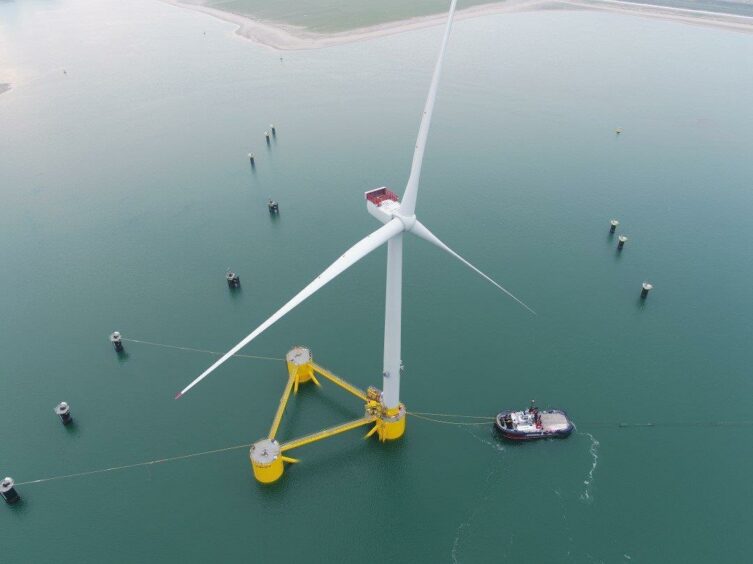
Plans have been submitted for a project which will overtake the Kincardine development off Aberdeen as the world’s largest floating wind farm.
Erebus, being developed by TotalEnergies and Simply Blue Group, is a 100megawatt demonstrator off the coast of Wales, twice the power of Kincardine which lies nine miles off Aberdeen.
Joint venture operator Blue Gem Group has now handed in planning consent applications to build and operate the project around 27miles south-west of the Pembrokeshire coastline in 70-metre water depth.
Project managing director Mike Scott said: “These applications represent a significant milestone for project Erebus, and the ambition to deliver new low carbon energy from the Celtic Sea.
“Erebus will provide green energy to over 93,000 homes and kick-start the stepping-stone approach to floating wind in the Celtic Sea, creating new low carbon careers, supply chain and diversification opportunities, and stimulate the necessary investment into port infrastructure.”
Kincardine, which became fully operational last year and is backed by Spain’s Cobra Group, is a demonstrator project generating enough renewable electricity for more than 50,000 Scottish homes.
It comes as floating offshore wind is expected to boom in the years ahead, particularly as awards from the ScotWind leasing round are converted into projects (so Kincardine’s reign as the largest floating project was always going to be short-lived).
Construcion of Erebus is expected to take place in 2026 ahead of first power in 2027, with an operational design life of 25 years.
Last year, Offshore Wind Advisors won the front-end engineering design (FEED) contract for the Erebus wind farm, which will consist of between seven and 10 turbines on Priniple Power’s Windfloat floating platforms.
Erebus is named after the famous ship, built in Pembroke Dock in 1826 which left England in 1845 with another vessel, HMS Terror, in order to search for the North-west Passage – a vital sea route between the Atlantic and Pacific Oceans.
Both ships were lost, and all 129 men on board perished in the worst disaster in the history of British polar exploration.
The BBC produced a fictional drama series of the expedition in 2018.
Recommended for you


 © Supplied by Statkraft
© Supplied by Statkraft © Granger/Shutterstock
© Granger/Shutterstock